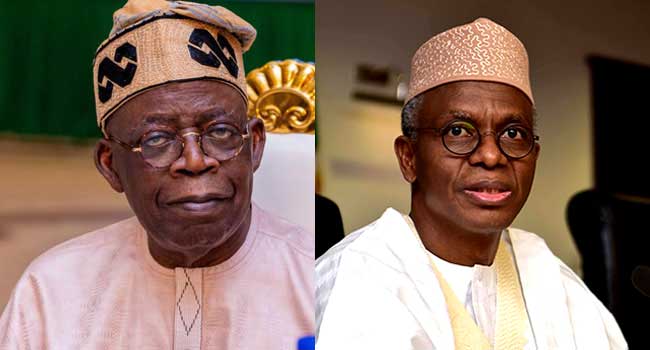El-Rufai’s Claim of “Tenure Elongation” Is Baseless — Nigeria’s Institutions, Constitution and International Standing Make It Impractical and Dangerous
A recent allegation that President Bola Ahmed Tinubu intends to extend his time in office beyond the constitutional limit — in effect becoming a “Paul Biya of Nigeria” — should be treated with scepticism and rejected on multiple, verifiable grounds. Nigeria is not Cameroon, and attempts to normalise tenure extension would face immediate legal, political and diplomatic barriers. More importantly, President Tinubu’s record since taking office in 2023 points to a reform-driven agenda aimed at building institutional capacity and leaving a legacy — not at destroying the constitutional order for personal gain.
1. The Constitution and Separation of Powers Are Clear
The 1999 Constitution (as amended) sets out fixed presidential terms and a clear two-term limit for presidents and governors. Any attempt to remain in power past a lawful exit would require constitutional amendment — a process that needs broad legislative approval, public debate, and ratification by two-thirds of Nigeria’s State Houses of Assembly. The country’s multi-tiered democracy (federal, state, local) and independent institutions such as INEC and the judiciary make unilateral elongation virtually impossible.
2. Political and International Costs Are Too High
History shows Nigerians resist tenure elongation. Former President Obasanjo’s 2006 “third term agenda” collapsed under fierce opposition from the National Assembly, civil society, and the public. Internationally, Nigeria’s partners in ECOWAS, AU, and beyond would respond with sanctions and isolation — measures that have been applied to other African states sliding into undemocratic rule.

3. Tinubu’s Record Points to Legacy, Not Dictatorship
Tinubu has pursued bold and often unpopular reforms: removing the fuel subsidy, restructuring foreign exchange markets, digitising passport services, and pushing food security and educational reforms. These are high-cost political moves made to stabilise Nigeria long term. Such a trajectory signals a leader working to cement a legacy, not undermine institutions for personal entrenchment.
4. Why the “Paul Biya” Analogy Fails: Nigeria vs. Cameroon
To understand why the comparison is misplaced, it is useful to examine the two countries’ systems:
Nigeria’s Constitutional Safeguards
Fixed Term Limits: Two four-year terms only, changeable only through rigorous amendment.
Separation of Powers: Federal system disperses power across executive, legislature, judiciary.
Democratic Culture: Four peaceful transfers of power since 1999, strong civil society, and vocal press.
International Role: Nigeria is ECOWAS’s anchor state and would face immediate sanctions if it attempted undemocratic tenure elongation.
Cameroon’s Political Trajectory (Paul Biya’s Longevity)
Constitutional Manipulation: 2008 reforms removed term limits entirely.
Centralised Power: Unitary system with weak checks and rubber-stamp parliament.
External Influence: Heavy French involvement in financial reserves and economic policy reduced internal accountability.
Weak Civil Society: Limited press freedom and suppressed opposition allowed Biya’s grip on power.
Comparative Insight: Nigeria’s vibrant federalism and entrenched democratic culture make a Biya-style presidency structurally impossible. Cameroon’s experience reflects weakened institutions and external dependency, conditions that do not exist in Nigeria.
5. El-Rufai’s Political Calculus
El-Rufai’s remarks appear more rooted in personal grievance than in fact. Having failed to secure a ministerial appointment, he has reportedly vowed to work against Tinubu’s 2027 re-election. His rhetoric about tenure elongation should be read as part of a campaign to discredit Tinubu before the next polls, not as a reflection of reality.
6. Conclusion
Nigeria is a constitutional democracy with entrenched term limits, strong institutions, and a history of resisting tenure extension. President Tinubu, a veteran of the NADECO struggle against military rule, has consistently positioned himself as a democrat. His reform agenda shows he is focused on legacy, not power-grabs.
The public should therefore treat El-Rufai’s comments as political theatre, not evidence. Nigeria is not Cameroon — and its president is working to strengthen, not undermine, democratic institutions.
Dr. G. Fraser. MFR.
The National Patriots




